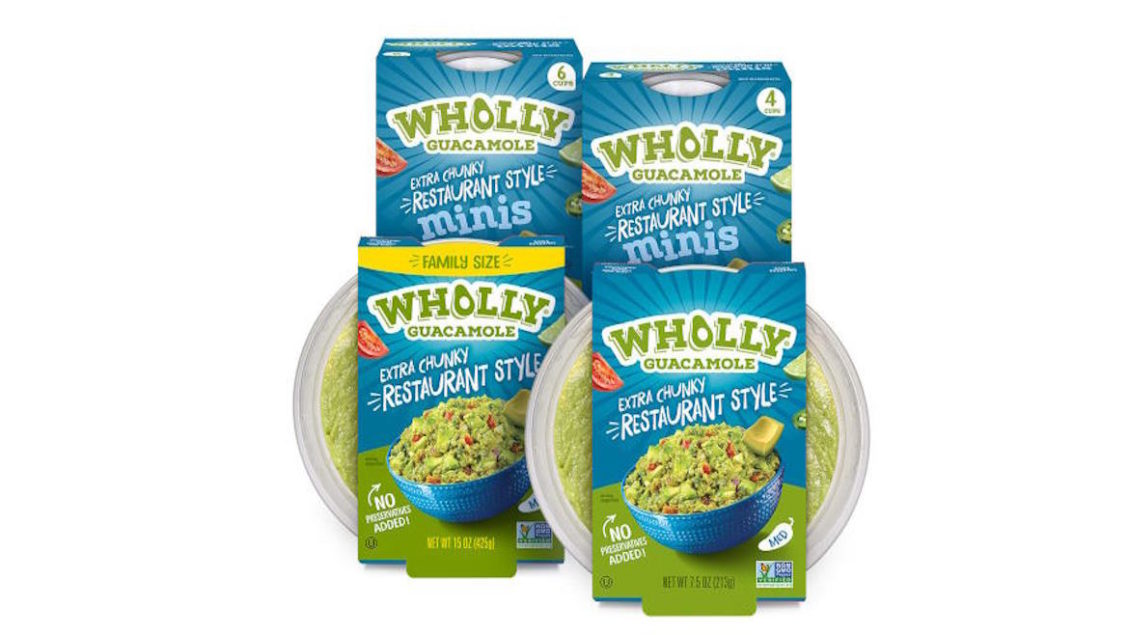The right grain mill can make all the difference in your ability to create delicious meals from your stored grains, beans, and legumes. Wheat grinders make it possible for our family to eat better, for less money, and keep our food storage rotated.
Freshly ground flour is more flavorful and creates a better product.Specialty flours can be outrageously expensive. Investing in a grain mill will pay for itself quickly as you use it to grind a variety of grains.Fresh flour is higher in nutrition. It has not been stripped of nutrients or filled with hidden additives to extend the shelf life. It contains the germ, bran, and endosperm.Self-sufficiency is dramatically increased when you can grind stored grains into flour. Add some fun diversity to your diet with the ability to grind all kinds of grains. With a grain mill, you are no longer limited to what is offered for sale. You choose what kind of flour you want along with how course you want the flour to be ground.
Grain mills use different mechanisms to grind, crush, or explode the grain into a variety of textured flours. Generally, you have burr mills that crush the grain between the plates (stone or metal) or impact mills that produce fine or very fine flours where the grain is burst into smaller pieces in a grinding chamber.
As preppers, we consider ways to continue living life if the grid goes down. Some grain mills have a hand crank that will allow them to be used without electricity, most do not. Grinding grain by hand is a lot of work without a high-quality mill. Let us look at a few options starting with the least expensive.
Victoria Hand Grain Mill- $44
If you are on a tight budget, a Victoria Hand Grain Mill is a mill that you may want to consider for emergencies. It can be used to grind just about anything from grains to corn to nuts to coffee. It attaches to the countertop. My one caution with this is that you get what you pay for. It takes more work to grind, and the final product will not be as nice as with more expensive models. However, if this is what fits into your budget it may be a good option.
Roots & Branches make a little hand-operated mill that is similar to a Back to Basics hand grinder that we have. It takes a lot of hard work to grind a little bit of flour but the price is affordable.
Lehman’s Own Hand-Cranked Grain Mill – $219
Lehman’s makes a quality hand-turned grain mill with cast iron burrs. Leman’s Own Hand-Cranked Grain Mill will grind all dry grains and beans as well as oily materials like soybeans, coffee beans, peanuts, sesame seeds, spices, and herbs. This is the best manual grain mill under $250.
Wonder Mill Junior Deluxe – $300
The Wonder Mill Junior Deluxe is a manual grain grinder for both dry and oily grains. It can grind grains into fine flour, crack grains, and will make masa and nut butter. The hopper holds a quart of grain or beans.
This mill can be securely attached to a counter or table using clamps. It has stainless steel milling burrs which give you more versatility so you can grind oily or high moisture grains and legumes such as nuts and seeds. It has a cleaning brush to clean the mill after grinding oily products.
Country Living Hand Grain Mill – $500
I have a Country Living Hand Grain Mill in my pantry. It will grind all dry grains and legumes into my choice of course or fine flour. It has an aluminum body and a stainless-steel spring auger. The hopper will hold up to 2 pounds of grain. I like the large flywheel that makes it easier to turn than most hand-operated grain mills. It also is easy to motorize.
Diamant Hand Mill – $1000
The Diamant is the Rolls Royce of grain mills. It is solid cast iron and built to last. The large flywheel is easy to turn and can grind grains into fine flour. The Diamant will grind grain, beans, and corn without the need for special augers. It will grind coffee, nuts (except peanuts), and seeds. The sealed bearings eliminate the need for maintenance. If money is not an issue, this is the ideal hand grinder for emergency and everyday use.
Grinders will differ significantly in price, noise, capacity, type of grains it can grind, quality of the flour produced, as well as ease of use. Purchase one that will make your life easier and not be a frustration to you.
Golden Grain Grinder -$550
We have a Golden Grain Grinder that is almost 40 years old and still going strong. This is a heavy-duty stone mill that can be operated using a hand crank during a power outage. It grinds wheat at a rate of 50-60 pounds of flour in an hour. It is incredibly convenient.
The one major drawback of this grinder is that it cannot grind dry beans or corn. They will damage the grinding stones. I grind a lot more wheat than I do beans and corn, so I use this for the majority of my needs and grind beans in a different grinder.
Nutrimill Electric Grain Mill – $350
The Nutrimill is a fantastic little grain mill. It has stainless steel milling teeth that produce incredible control over the coarseness of the flour. It can turn wheat into fine pastry flour. It will grind wheat, corn, legumes, beans, rice, quinoa, amaranth, and many other dry grains. The Nutrimill will not grind oily or moist grains such as coffee beans, nuts, or seeds. It is quiet and takes up very little space.
This is one of the grain mills that I have in my little arsenal. I like that it is light enough to store in my pantry and take out when we need to use it.
NutriMill Harvest Stone Grain Mill – $319
The NutriMill Harvest Stone Grinder is a unique little grinder. It looks nice sitting on the countertop. It uses Corundum Grainmaster milling stones from Germany that will grind hard grains into pastry fine flour or crack them for cereal.
The NutriMill Harvest can grind grains (wheat, triticale, millet, Kamut, spelt, barley, buckwheat, rye, amaranth, sorghum, rice, and dent corn), dry beans, and lentils. It should not be used to grind moist or oily products like seeds or nuts. The NutriMill Harvest Stone Grain Mill owner’s manual may answer any questions that you may have.
Wonder Mill – $300
The Wonder Mill is a micronizing mill that will grind wheat, corn, rice, legumes, dry beans, and other small grains. The setting can be adjusted to produce coarse to super-fine flours. It can grind up to 100 pounds of flour in an hour.
You can view the manual for the Wonder Mill here to learn more about how it operates.
Blendtec Electric Kitchen Mill – $300
The Blendtec Kitchen Mill is a nice compact grain mill. It uses a surgical stainless-steel Micronetic milling chamber to burst the grains into flour. It will grind grains, dried beans, popcorn, soybeans, rice, and legumes into fine flours. I have one of these and it works well. The bean flour that it makes is incredible. However, it tends to blow fine dust out during the process. I like to use it out on the back patio so that I do not have to clean up the fine flour dust in the kitchen.
You can find the user manual for the Kitchen Mill here to see if this is a good fit for your needs.
Vitamix Blender – $300
You may want to investigate purchasing a high-quality blender if you do not need to grind flour very often. High-end blenders, such as a Vitamix or Blendtec, can grind small amounts of flour when you need it. Just place whole wheat kernels in the mixer. Start the blender on low and then quickly increase to the highest speed. You can get fine whole wheat flour in one minute.
I love my Vitamix because it is so versatile. If you are limited on space or just want to explore grinding your own flour, this might be the right choice for you. Check out the user manual here.
My top picks for a grain mill to use every day depends on your individual circumstances. Before you explore the options for grain grinders, take a moment to answer these important questions.
How often will you be grinding grain?
If you are only planning to grind a little bit of wheat once a month, you may want to purchase a high-quality blender like a Vitamix that can also be used for other purposes. A blender would not be a good choice for you if you are grinding flour every day.
What do you want to grind?
Countertop mills are created differently, and some are ideal for grinding fine flours from grain, but will not grind dry beans or corn into flour. Some are designed to process oily foods such as coffee, nuts, and seeds.
The possibilities are endless with the right grain mill. You can grind grains like wheat, rye, spelt, Kamut, triticale, millet, teff, barley, quinoa, rice, buckwheat, oats, sorghum, amaranth, the list is endless. Some grain mills are also designed to also grind corn, dry beans, and lentils which will damage other grinders.
How much space do you have for a grain mill?
It is important to look at your kitchen and determine if you have a good place on your countertop for your grain mill to live. Personally, my countertop space is limited so Jonathan built a special place in our pantry for my grain mills to hang out. They are easy to access and use, but they are tucked out of the way until I need them.
Some grain mills are light and compact. They can easily be stored in the pantry and brought out when you need a little bit of flour. Others are just too heavy or bulky to be moved all the time. Still, others need to be anchored solidly to a surface or stand.
What is your budget for purchasing a grain mill?
Purchase the best quality mill that you can afford. I have a cabinet grain mill that is about 40 years old and is still faithfully grinding wheat into flour several times a week. An inexpensive $50 grain mill may work in an emergency, but it will not serve you well for many years to come.
Do you need a grain mill to work without electricity?
Disaster strikes, and now you need to rely on your food storage. Wheat is fantastic in that it has an incredibly long shelf life. Read the article …
Some electric grain mills can be easily adapted to a hand crank if you have the right parts. Personally, I have not come across a hand grain mill that is as easy to use as my electric grain mills. When choosing a manual grain mill, purchase the highest quality that you can afford. Some of them require almost as many calories to grind the wheat as you might get from the finished bread.
We have the Country Living Grain Mill. I think it is a great option for an emergency grain mill. We even have backup parts stored if we need to go through a long-term grid event or if all our neighbors are dropping by to grind their stored wheat. One of the benefits of the Country Living Grain Mill is that it has an auger that will also grind dry beans and corn into flour.
The Diamant is probably the absolute best non-electric grain mill on the market. It grinds everything without the need for special augers. It has a large flywheel handle to make grinding easier and is built to last.
You do not absolutely need to purchase a grain mill to have a good storage program. You can store foods like white rice, beans, rolled oats, and pasta that do not require grinding. If you are operating on a limited budget, that may be what you want to do.
I love my grain mill and use it regularly. True confession, I own more grain mills than any person needs to have. Preppers always have a backup for their backup. We also are planning to be able to share and help others when times get tough. I would be happy to exchange grinding my neighbor’s wheat in exchange for a loaf of freshly baked bread.
Learning to grind and use your own grains will significantly increase your family’s nutrition and the diversity in your diet. Freshly ground flour is just a regular part of our life. A quality grain mill will make it easy to add fresh flours in your menu plan.
Thanks for being part of the solution!Jonathan and Kylene Jones










